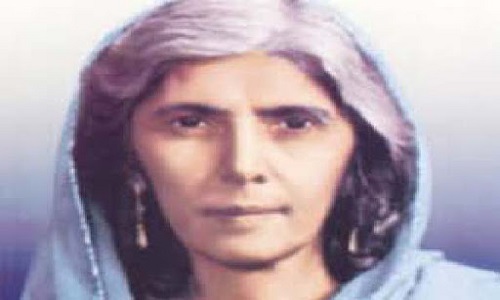Women status in Pakistan
Women status in Pakistan society (past & present)

Women and men are two wheels of a car, on one wheel the car cannot perform its function.
Well similarly if women nowadays in this underdeveloped country cannot work shoulder to shoulder with a man so they cannot achieve success because women are half the population of this country.
In Pakistan, the total population is 208 million of which 49% are women (2017).
But in this mixed cultured society, the opinions about women status differ, this then differs again across class, region, urban & rural divisions.
In the past, the majority of women in Pakistan were powerless compared to male members of the society, mostly deprived of their rights which were provided by both the government and Islam.
Women were granted the right to vote in 1947 due to the creation of Pakistan and having Islamic laws, males were considered the head of the family and so responsible for making decisions for the whole family.
There is male dominance throughout the country and women are born to look after the household activities and bring up their children this patriarchal society mindset can bring violation upon women’s rights.
Women are deprived of education, property inheritance, and work for a living or manage their own finances, there are also cultural patterns that increase the inhuman treatment of women like isolation, honor killings, Swara (Vani), and dowry deaths.
In short domestic violence was common practice in the past which is why for the majority of women today, their basic fundamental rights are like a dream come true.
Presently Pakistan is not a backward country, it has become a developing country in recent years there has been some progress in every field of life in order to develop itself, the people are now interested in getting an education (school and Islamic education) which is changing their perception about women and their status in society.
There is a rise in women empowerment, men now consider women as queens of the house whatever the relationship may be (mother, daughter, sister, wife, etc.) they prefer the women to have their higher education and send them to university.
Women now serve their country through their education, skill, and experience.
A majority of women are now stable, their status in society elevated, participation in every field of life, they even participate in politics and became politicians like Benazir Bhutto (PM of Pakistan) women have started to train themselves in teaching, office work, hospitals (nurses and doctors) even joining armed forces.
Women have become fashion designers to introduce modern designs of the latest fashion styles, in fact, some feel they are now overdoing it in fashion.
The young generation is also interested in acting as they are impressed by Hollywood & Lollywood movies, they want to become actresses and other art professionals (makeup artist, painter, etc.)
Moreover, besides physical work, the women in our society have also performed plenty of jobs working from home and have started participating in online jobs thus getting computer skills and stable work in many fields like an online tutor, freelancer, writer, you tuber, interpretation, etc.
They now establish their own business through many online websites and companies like Amazon and thus their dependency on male members of society has decreased, this, in turn, helps to increase Pakistan’s GDP.
To ensure the gender equality and empowerment of women, the women in Pakistan government have also adopted a number of (international communities) e.g. the universal declaration of human rights, Beijing platform for action, Convention on the Elimination of All Forms of Discrimination against Women, etc.
Even the men now want to get rid of the gender inequality which the country inherited so the modern government passed many bills about women protection which now give a big relief to women in Pakistan.
By: Nasiha Gul
